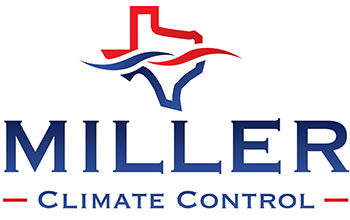
We spend lots of time in our homes. As a matter of fact, the Environmental Protection Agency (EPA) has estimated being inside comprises 90% of our schedule. However, the EPA also says your indoor air can be three to five times more polluted than outside your home.
That’s due to the fact our homes are securely sealed to boost energy efficiency. While this is fantastic for your heating and cooling costs, it’s not so fantastic if you’re amid the 40% of the population with respiratory allergies.
When outdoor ventilation is limited, pollutants such as dust and volatile organic compounds (VOCs) could get captured. Consequently, these pollutants might irritate your allergies.
You can enhance your indoor air quality with crisp air and usual dusting and vacuuming. But if you’re still having issues with symptoms when you’re at your house, an air purifier might be able to provide relief.
While it can’t remove pollutants that have gotten trapped in your furnishings or carpet, it could help purify the air traveling across your home.
And air purification has also been scientifically proven to help lessen some allergic symptoms, according to the American College of Allergy, Asthma and Immunology. It can also be appropriate if you or a loved one has lung trouble, such as emphysema or COPD.
There are two kinds, a portable air purifier or a whole-home air purifier. We’ll discuss the differences so you can determine what’s right for your house.
Whole-House Air Purifier vs. Portable Air Purifiers
A portable air purifier is for a lone room. A whole-house air purifier accompanies your heating and cooling system to treat your full house. Some models can work independent when your HVAC equipment isn’t operating.
What’s the Best Air Purifier for Allergies?
Look for an option with a High Efficiency Particulate Air (HEPA) filter. HEPA filters are placed in hospitals and offer the most comprehensive filtration you can get, as they trap 99.97% of particles in the air.
HEPA filters are even more powerful when combined with an ultraviolet (UV) germicidal light. This dynamic blend can destroy dust, dander, pollen and mold, all of which are standard allergens. For the best in air purification, consider a system that also has a carbon-based filter to eliminate household smells.
Avoid getting an air purifier that generates ozone, which is the top ingredient in smog. The EPA warns ozone might aggravate respiratory problems, even when released at low amounts.
The Allergy and Asthma Foundation of America has compiled a checklist of questions to consider when buying an air purifier.
- What can this purifier extract from the air? What doesn’t it remove?
- What’s its clean air delivery rate? (A bigger amount means air will be purified faster.)
- How often does the filter or UV bulb need to be replaced]? Can I finish that without help?
- How much do spare filters or bulbs cost?
How to Reduce Seasonal Allergy Symptoms
Want to get the {top|most excellent|best] outcome from your new air purification unit? The Mayo Clinic recommends taking other measures to limit your exposure to things that can trigger seasonal allergies.
- Stay indoors and keep windows and doors closed when pollen counts are high.
- Have other household members mow the lawn or pull weeds, since these tasks can trigger symptoms. If you must do these chores yourself, you might want to consider wearing a pollen mask. You should also rinse off immediately and put on new clothes once you’re done.
- Avoid hanging laundry outside your home.
- Use your air conditioner while at home or while you’re on the road. Consider adding a high efficiency air filter in your house’s heating and cooling equipment.
- Even out your residence’s humidity levels with a whole-house dehumidifier.
- Hardwood, tile or linoleum are the ideal flooring types for reducing indoor allergens. If your residence has carpet, add a HEPA filter on your vacuum cleaner.
Let Our Pros Take Care of Your Indoor Air Quality Necessities
Want to take the next step with getting a whole-house air purifier? Give our professionals a call at 512-379-6873 or contact us online to schedule an appointment. We’ll help you find the best equipment for your home and budget.

